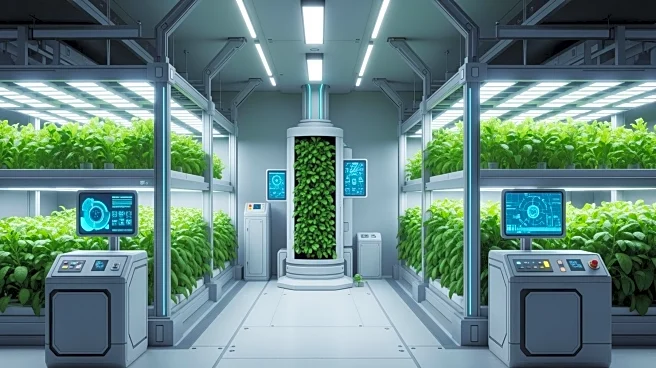What's Happening?
The Food and Agriculture Organisation (FAO) is leveraging innovation to address global food insecurity, which is exacerbated by climate shocks, conflict, and economic slowdowns. Vincent Martin, director
of the FAO's office of innovation, highlighted the role of technology, such as AI-powered early-warning systems and biotechnology, in predicting and preventing crop yield losses. These technologies are part of a broader strategy to reduce hunger and malnutrition worldwide. However, Martin emphasized that technology alone is insufficient; social, policy, financial, and institutional innovations are also necessary to achieve sustainable food security. Collaborative models, such as open-source technology, are being promoted to make innovations more affordable and accessible globally.
Why It's Important?
The FAO's focus on innovation is crucial as global food security faces significant threats from environmental and geopolitical factors. By integrating technology with other forms of innovation, the FAO aims to create a more resilient food system. This approach could lead to improved crop yields and reduced hunger, benefiting millions worldwide. The emphasis on affordability and collaboration ensures that even countries with limited resources can access and implement these innovations. This strategy not only addresses immediate food security challenges but also fosters long-term sustainability in agriculture.
What's Next?
The FAO plans to continue fostering collaboration among stakeholders, including academics, farmers, and farmers' associations, through initiatives like Living Labs. These projects aim to identify problems and co-develop solutions, ensuring that innovations are both scalable and affordable. The FAO's efforts could lead to widespread adoption of smart agriculture practices and IoT technology, further enhancing food security. As these initiatives progress, they may influence policy changes and encourage investment in sustainable agricultural practices globally.
Beyond the Headlines
The FAO's approach highlights the ethical and social dimensions of food security, emphasizing the need for inclusive and equitable access to technology. By promoting open-source models, the FAO is advocating for a democratization of innovation, ensuring that technological advancements benefit all, particularly those in developing regions. This strategy could lead to a shift in how global food systems are structured, prioritizing collaboration and shared benefits over competition and exclusivity.











